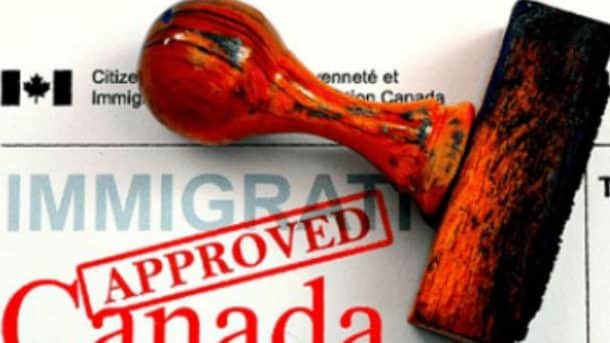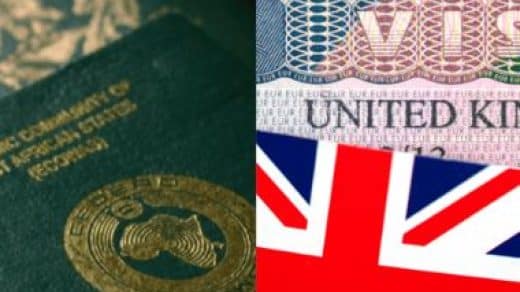Getting accepted into a Canadian university or college is a significant accomplishment for a foreign student. Nevertheless, you need to obtain a study permission before you can relocate to Canada and pack your bags.Canada welcomes international students because their higher tuition fees help finance domestic education costs and because they enhance the potential workforce of the nation.
But since the epidemic, applicants for study permits from a wide range of nations are being turned down at a rate that is greater than usual because of the growing demand for admission to Canadian universities and colleges as well as the continued backlog of applications. 329,213 study permits were granted by Immigration, Refugees and Citizenship Canada (IRCC) in 2021, and 60% of all student visa applications were granted. By comparison, in the first quarter of 2022, the approval rate for study permits dropped to 55%.
This article explores the typical reasons for Canadian student visa denial and how you might prevent them if you want to apply for a study permit in Canada.
Reasons why applications for Canadian student visas are denied
Knowing what the IRCC looks for in study permit applications and the grounds for denial is the first step towards preventing student visa rejection. The IRCC typically denies Canadian study visas for the following 15 reasons:
Not possessing a DLI acceptance letter
Only those who have been admitted to a Canadian Designated Learning Institution (DLI) are eligible for a study permit. A college or university that is authorized to accept overseas students is known as a DLI. Your school will send you a letter of acceptance (LOA) as soon as you are admitted, and you need to attach it to your application.Your application for a study permit will be denied if it is filed without a letter of acceptance or if it is not from a recognized DLI in Canada.
Insufficient evidence that you intend to depart Canada following your education
Officers handling visas want to know if you plan to depart Canada when your studies are over. One of the requirements of your study permission as an international student is that you cannot remain in Canada unlawfully after it expires. Despite the possibility that you could be eligible to apply for a Post-Graduation Work Permit (PGWP) or study permit extension after graduating, indicating on your student visa application that you plan to remain in Canada after studying could result in its rejection.
Unclear reason for the visit
The visa officer will deny your application if they do not believe that your intention to study in Canada is sincere. This may occur if your application is missing a statement of purpose that explains your motivation for studying in Canada and how this specific program will advance your professional objectives. In this situation, the visa officer might believe that you are planning to work illegally in Canada rather than being a true student.
Insufficient financial stability
Your application for a student visa requires you to demonstrate that you have the financial resources to pay for your studies in Canada.Your study visa will be denied if you are unable to produce adequate proof of having paid your first year’s tuition or having the funds to do so, as well as proof of your living expenses while you are enrolled in classes. Additionally, you must be able to demonstrate how you came by the money, whether through bank loans, scholarships, savings, etc.
You must have a Guaranteed Investment Certificate (GIC) and submit your study permit application with the necessary paperwork if you’re applying for one through the Student Direct Stream (SDS). Please take note that you will receive your money back from this GIC, which you can use to partially offset your living expenses while you are a student.
Erroneous or lacking academic records

Together with your application for a student visa, you must provide proof of previous education, transcripts, and grade reports. Your academic records serve as evidence of both your previous degrees or certificates’ authenticity and your reputation as a conscientious learner. The visa officer has the right to reject your application if any of your supporting documentation is missing or if your academic record is questionable.
Selecting a course of study that is incompatible with your previous training or experience
The study program you select will determine a great deal about the acceptance or rejection of your study visa application. The visa officer might not be persuaded that your main reason for coming to Canada is education if your study program doesn’t match your intended job path, prior schooling, or recent work experience. If your study program isn’t a natural progression from your previous coursework, be sure to include a clear explanation in your statement of purpose as to why you’ve chosen it and how it will further your career.
Inexplicable voids in your background or education
It’s critical that your employment history and education remain consistent. Applications for study permits may be denied if the applicant took a year off from school or worked for a period before applying. In your statement of purpose, you should clarify any legitimate reasons for any gaps in your work or academic background.
Low mark on the language exam
An essential need for obtaining a study permit is proficiency in English (or French if you plan to study in Quebec or enroll in a French-language program).If you receive a low score on an authorized language exam (such IELTS, CELPIP, TEF Canada, or TCF Canada), your application for a student visa will probably be denied.
Family relationships in Canada and your nation of origin
Strong family links in Canada may not always be in your favour when applying for a study permit. Including information about your siblings’ residence in Canada in your application could give the immigration officer reason to believe you won’t be returning home after graduation. Similarly, the visa officer might conclude that you don’t have a compelling enough reason to leave Canada after completing your studies if you mention that you don’t have any immediate relations in your home nation.
Many applications for study permits are still pending.
There isn’t much you can do to control how many study permit applications the IRCC processes at any one time, but occasionally a backlog of applications can lead to a higher rejection rate. If visa officers are processing more applications than usual, they may reject applications for small inconsistencies.
Refusal of admission due to a criminal or medical condition
Your study permit will probably be denied if your medical exam results show that you are not in good health. In addition, if you have already committed or been found guilty of a crime, your entrance into Canada may be refused. If you were under 18 at the time of the offense, your study permission might still be granted.
Insufficient or unacceptably old travel records
The immigration officer reviewing your application will extensively review your previous travel history. When completing the application, make sure to include the proper dates of your international visits. If you provide an incomplete or inaccurate travel history, your study visa will probably be denied. Additionally, if you are in your current country of residence illegally or if you have overstayed your visa in Canada or another country in the past, your student visa will be rejected.
Documentation that is lacking
Your study permission may be refused if you submit forms that are not fully completed, omit any necessary documents, or have other gaps in your application that prevent you from stating why you are visiting.If you wish to study in Quebec, you should additionally send a Quebec Selection Certificate and a statement of purpose, which is sometimes known as a letter of explanation, with your LOA, proof of identity, and proof of financial support. Carefully go over the document checklist that your local visa office sent you, as some applicants from specific countries might need to submit extra documentation.
Lying on your application for a student visa
If you include any false information or exaggeration in your study permit application, it could be rejected. Typically, immigration officers thoroughly check your documentation and confirm the facts you submit. Verify the information you include in both your application and statement of purpose.It is illegal to provide false information or make false representations, and doing so can lead to the denial of your student visa as well as future access restrictions into Canada.
Employing an unauthorized immigration advisor
Make sure the immigration or educational consultant you hire to assist with your study visa application is approved by Canada’s College of Immigration and Citizenship Consultants (CICC). Regulated International Student Immigration Advisors (RISIAs) are approved education advisors connected to Canadian universities or colleges.
Watch out for unlicensed immigration agents and education advisors that tell you to lie on your application or who assure you that you will be accepted into a Canadian school. It is your duty to confirm the authorization of the consultant you work with; if the consultant is not licensed, your application for a student visa may be denied.
How to increase the likelihood that your study permit for Canada will be granted

It is crucial that you confirm your application is accurate, full, and presents a strong case for your permission to study in Canada before submitting your Canadian student visa application.Now that you are aware of the typical grounds for denial, you can increase your chances of having your study permit accepted by following these suggestions:
A document checklist can help you make sure you send in all the necessary papers.
Each nation may have different documentation requirements for student visas, so be sure to include everything on your document checklist. If you believe that providing more documents than what is officially asked will increase your chances of being approved, don’t be afraid to do so. Proof of assets, such as a stock portfolio or piece of real estate, can persuade the immigration officer that you have good reason to return home after finishing your education.
Verify if the college or university you’re applying to is a DLI.
Make sure a Canadian institution or college is listed as a Designated Learning Institution (DLI) on the government’s list before submitting an application. International students can only be accepted by Canadian DLIs; admittance to a non-DLI institution will not provide you a study visa.
Make an informed choice about your study plan.
Your intended course of study in Canada ought to be connected to your previous coursework or professional background. You should be able to describe how the abilities you get from this program will further your career if there isn’t a clear connection between it and your current path.If you are studying data analytics in Canada after studying marketing in your native country, for example, you may want to emphasize how this knowledge will assist you enhance the effectiveness of marketing initiatives.
Give enough financial documentation.
Make sure you have a Guaranteed Investment Certificate (GIC) of at least $20,635 ($15,078 if you’ll be studying in Quebec) before submitting an application for a study visa through the Student Direct Stream (SDS). Make careful to include the processing fee or administration charge that financial institutions may impose from your deposit amount when making your GIC payment. Additionally, you will need to provide proof that you have paid for your housing and tuition for the first year.
In the event that you are applying via the general study permit stream, you may submit documentation of your financial support, such as bank statements, scholarship awards, student loans, etc. The greater your financial evidence, the more likely it is that your student visa will be granted.
Put a mission statement with your application for a student visa.
A letter of explanation or statement of intent is not required, but it can be quite helpful when applying for a study permit. A statement of purpose explains your motivations for selecting a specific program, your career goals, and your desire to study in Canada. Along with explaining any gaps in your education and experience, you should also address any discrepancies in your academic record.
Boost your score on the language exam
Being perfect on your first attempt at a language test is not always easy. Be ready to retake the Academic IELTS, CELPIP, TCF, or TEF Canada if your first score was poor in order to raise it. Although the language test cost will need to be paid again (it normally costs about $300), achieving a high score can improve your chances of being accepted into a Canadian university or college and having your student visa accepted. Before retaking the language exam, give it some practice and go over our advice on raising your CELPIP or IELTS score.
Make it clear that you intend to go back home.
Make sure your application makes clear that you intend to finish your education and then return home. The primary duty that immigration officers want to make sure you understand as an international student is to depart Canada when your study permit expires. You can make this clearer by outlining your goals for your career in your native country and how your study in Canada will enhance your chances of finding employment there. It makes sense that at this point, at least until you have had a taste of life as a student in Canada, your future intentions will be unclear. Therefore, it’s advisable to refrain from broaching the subject of staying longer in Canada after graduation.
Verify if your immigration advisor is a recognized RISIA.
Make sure the immigration consultant you intend to hire is a licensed Regulated International Student Immigration Advisor (RISIA) connected to the university you are applying to if you want them to assist you with your study permit application. While RISIAs are qualified to offer direction and counsel regarding student visa applications, they are not permitted to file an application on your behalf.
What to do if your application for a study permit in Canada is turned down
Even though it might seem that way, your hopes of studying in Canada aren’t definitely doomed if your application for a study permit is denied. You can request a judicial review of the decision or submit a new application for a student visa. But before you can take any of those actions, you must ascertain why your study permission was rejected.
You are entitled to obtain the notes made on your application by the visa officer in the event that your study permit is denied. You can learn more about the reasons for your application’s denial from these notes, which are also referred to as the Global Case Management System (GCMS) notes. Foreign residents, however, are unable to directly seek GCMS notes. Rather, you will have to appoint a Canadian citizen or permanent resident immigration counselor or agent and provide them permission to obtain the notes on your behalf. Remember that this procedure may require up to sixty days.
You ought to be able to determine whether your study permit was denied for a good reason after you’ve received and gone over the notes. Depending on whether the visa officer’s ruling is genuine, you have three choices:
1. Reapply for a permission to study
You can always resubmit with more documents if your study permit was denied for legitimate reasons, such as inadequate proof of financial assistance or incomplete documentation. If at all feasible, postpone your studies in Canada for one semester to give yourself more time to reapply and obtain a student visa. Ensure that your updated study permit application is more thorough and free of errors or missing information compared to your initial submission. If you’re unsure of how to improve your application, think considering getting help from a RISIA to help you through the steps.
2. Ask for a court review of the decision on your application.
To have the decision of your study permit reconsidered, there is no official appeals procedure.
However, you can ask the Federal Court to examine the ruling and decide if it was reasonable if you are certain that your study permission was wrongfully denied. To do this, you’ll need the assistance of an immigration attorney who is permitted to practice law in Canada. Furthermore, this strategy need to be reserved for dire circumstances because the Federal Court does not consider every case.
3. Get out of your acceptance at the college or institution.
It’s also possible that there was a valid reason your study permission was denied, but you were unable to address the situation. For example, you could not have enough money to continue your study in Canada, or you might have misplaced your academic records.Your sole choice in such a situation is to deny admission to the institution or college and request a refund of your money. Make sure to inquire about the administration fee that the DLI may impose before returning your money. You will also need to receive a refund if you acquired a Guaranteed Investment Certificate (GIC) to provide financial evidence for your application.
Your ability to pursue your dream of studying in Canada depends on your ability to obtain a study permit, and it may often be unsettling to not know if you will be granted one. You can steer clear of the common errors that result in the denial of student visa applications by adhering to the advice we provided.Don’t worry, though, if your application is rejected. You can always improve it and submit another application later.
What our attorneys would like you to know
This article is not meant to be legal, financial, or other professional advice; it is merely designed to provide general information. Your particular circumstances should be discussed with a competent advisor. Although the information provided is thought to be accurate and up to date, there is no assurance of its correctness, and it shouldn’t be taken as a comprehensive examination of the topics covered. Opinions expressed here are subject to change and represent the author(s)’ assessment as of the publication date. The advice, opinions, information, goods, or services of any third parties are not explicitly or implicitly endorsed by Royal Bank of Canada or its affiliates.





